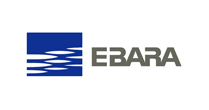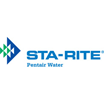
June 9th, 2025
Maintaining consistent water pressure in New Jersey is essential for various applications, from residential buildings to commercial facilities. To achieve this, NJ water booster pump play a pivotal role.
However, specific regulations that ensure safety, efficiency, and reliability govern their installation and operation. Understanding these regulations is necessary for anyone maintaining New Jersey water booster pumps.
Regulations surrounding NJ water booster pumps exist to protect both the water supply and the communities that rely on it. These rules are not formalities-they serve practical purposes that impact everyday water usage across New Jersey.
Complying with state standards isn’t merely passing inspections—it’s about ensuring systems remain dependable, safe, and responsive under stress. Specific codes in New Jersey detail the installation and operation of water booster pumps. These regulations include everything from minimum pressure requirements to pump station design and safety considerations.
The New Jersey Administrative Code mandates that public community water systems maintain a minimum pressure of 20 pounds per square inch (psi) at street level. This standard ensures that consumers receive adequate water pressure for daily activities. Additionally, by following the pressure requirements, you are making sure that your fire protection systems function effectively.
Booster pump stations have to be designed to keep the minimum required pressure. Where chronic low-pressure problems are found, the department may mandate that automatic switches be installed. This is to shut down pumps during low-pressure conditions and avoid system damage.
Pumping stations should be located above ground for easy inspection and maintenance. If an above-ground location isn’t possible, the station must meet specific requirements for underground installations. Additionally, stations should not be within the 100-year flood hazard area unless adequate flood protection measures are implemented.
All New Jersey water booster pump stations must comply with specific equipment standards. These units regulate water pressure and flow. They facilitate maintenance and minimize the possibility of breakdowns.
A flow totalizing meter is also mandatory for stations with a design capacity of 100,000 gallons per day or more.
Even good intentions can go wrong with minor oversights, causing entire systems to fail. Many struggles stem from missed steps or an incorrect understanding of basic requirements. Knowing these common mistakes in advance would be helpful to save time, money, and future repairs.
Regulatory compliance is not just about meeting legal conditions—it’s also about maintaining system performance and public trust. Transparent, simple processes can prevent difficulties before they occur. Some of the most crucial actions to take to stay compliant with New Jersey water booster pump rules include:
Start by breaking down how much water is required for the property. Measure the current pressure and note the existing plumbing configuration. A simple understanding of these components will enable you to select the right NJ water booster pump.
Work with professionals like Callaghan Pump, who specializes in New Jersey water booster pumps and knows local legislation. They can avoid the expensive mistakes. Good advice from the start will also accelerate approval.
Develop a routine check-and-servicing schedule. Regularly check valves, gauges, and other important parts. This ensures that the system operates smoothly and complies with the law.
Regulations may be adjusted according to environmental necessity or public health needs. Look for updates from the New Jersey Department of Environmental Protection. Being updated serves to prevent non-compliance.
In a nutshell, understanding and adhering to the regulations governing NJ water booster pumps is essential for ensuring system efficiency, safety, and longevity. By being informed and proactive, stakeholders can contribute to a reliable and compliant water infrastructure in New Jersey. Contact Callaghan Pump for more info.
john@callaghanpump.com,
eileen@callaghanpump.com,
dan@callaghanpump.com,
sales@callaghanpump.com,
service@callaghanpump.com












